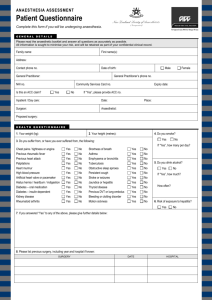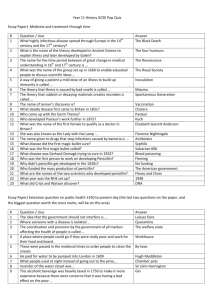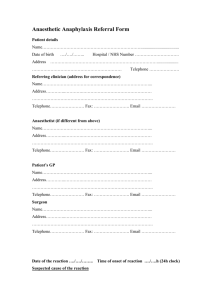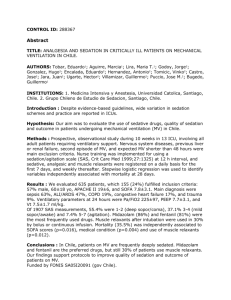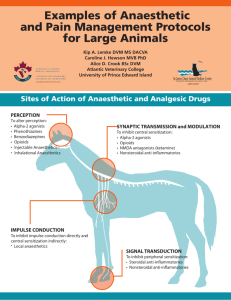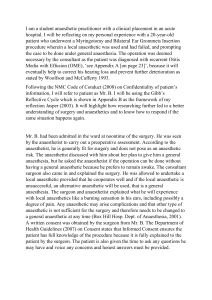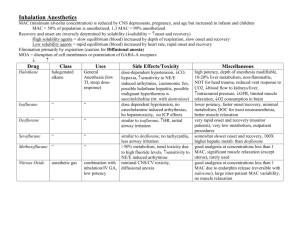So you are going to have surgery
advertisement
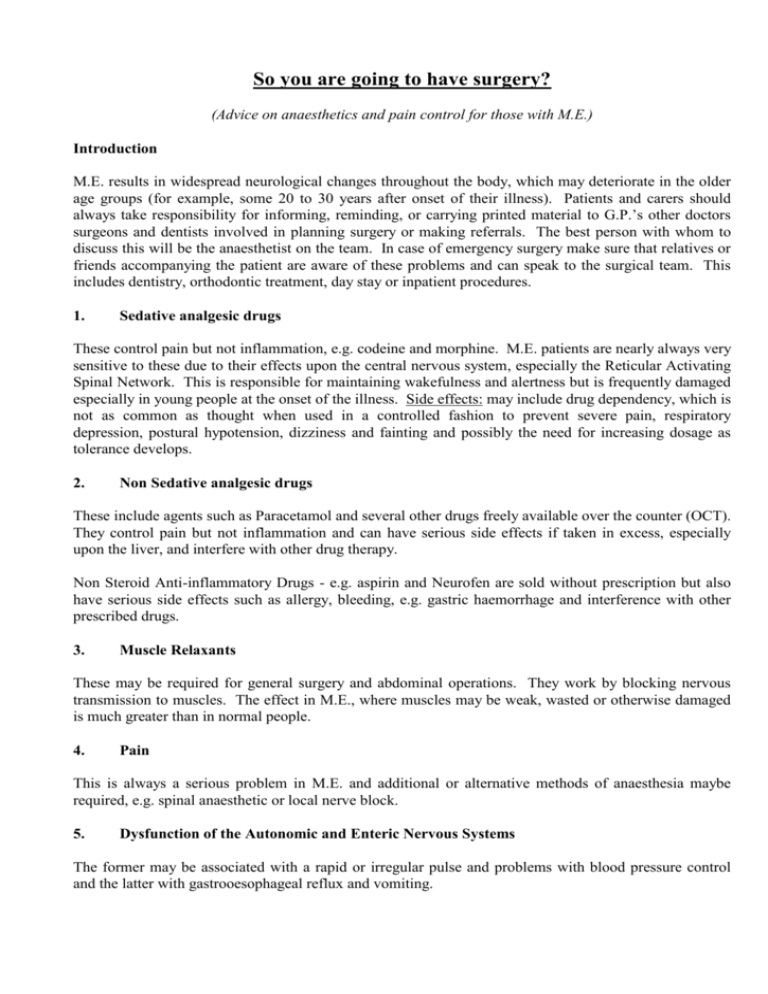
So you are going to have surgery? (Advice on anaesthetics and pain control for those with M.E.) Introduction M.E. results in widespread neurological changes throughout the body, which may deteriorate in the older age groups (for example, some 20 to 30 years after onset of their illness). Patients and carers should always take responsibility for informing, reminding, or carrying printed material to G.P.’s other doctors surgeons and dentists involved in planning surgery or making referrals. The best person with whom to discuss this will be the anaesthetist on the team. In case of emergency surgery make sure that relatives or friends accompanying the patient are aware of these problems and can speak to the surgical team. This includes dentistry, orthodontic treatment, day stay or inpatient procedures. 1. Sedative analgesic drugs These control pain but not inflammation, e.g. codeine and morphine. M.E. patients are nearly always very sensitive to these due to their effects upon the central nervous system, especially the Reticular Activating Spinal Network. This is responsible for maintaining wakefulness and alertness but is frequently damaged especially in young people at the onset of the illness. Side effects: may include drug dependency, which is not as common as thought when used in a controlled fashion to prevent severe pain, respiratory depression, postural hypotension, dizziness and fainting and possibly the need for increasing dosage as tolerance develops. 2. Non Sedative analgesic drugs These include agents such as Paracetamol and several other drugs freely available over the counter (OCT). They control pain but not inflammation and can have serious side effects if taken in excess, especially upon the liver, and interfere with other drug therapy. Non Steroid Anti-inflammatory Drugs - e.g. aspirin and Neurofen are sold without prescription but also have serious side effects such as allergy, bleeding, e.g. gastric haemorrhage and interference with other prescribed drugs. 3. Muscle Relaxants These may be required for general surgery and abdominal operations. They work by blocking nervous transmission to muscles. The effect in M.E., where muscles may be weak, wasted or otherwise damaged is much greater than in normal people. 4. Pain This is always a serious problem in M.E. and additional or alternative methods of anaesthesia maybe required, e.g. spinal anaesthetic or local nerve block. 5. Dysfunction of the Autonomic and Enteric Nervous Systems The former may be associated with a rapid or irregular pulse and problems with blood pressure control and the latter with gastrooesophageal reflux and vomiting. 6. Respiratory problems These can be due to weakness of the diaphragmatic and chest muscles, or to asthma and chronic obstructive airways disease, especially in smokers. The anaesthetist may need to order tests of respiratory function well in advance of any operation. 7. Muscle, Joint and other Orthopaedic Problems These, together with muscle weakness, may affect the correct support of the patient and the positioning of limbs on the operating table in order to avoid damage to superfiicial nerves. Summary The patient with M.E., compared with a normal person, requires less anaesthetic and caution with muscle relaxants, e.g. half the dose at onset with careful increments during operation, more painkillers, but caution with sedative analgesics and more time to recover. Day surgery may be inappropriate and the need for home support after discharge must be considered. Local anaesthetics, e.g. in dentistry, dermatology, and accident departments should be adrenaline free. With grateful acknowledgement to the Lincolnshire Post-Polio Network Library, http://www.lincolnshirepostpolio.org.uk Dr. E. G. Dowsett, MB.Ch.B., Dip. Bact. Honorary Consultant Microbiologist Basildon and Thurrock NHS Trust Address for correspondence: 47 Drewsteigton, Shoeburyness, Essex SS3 8BA. September 2001


